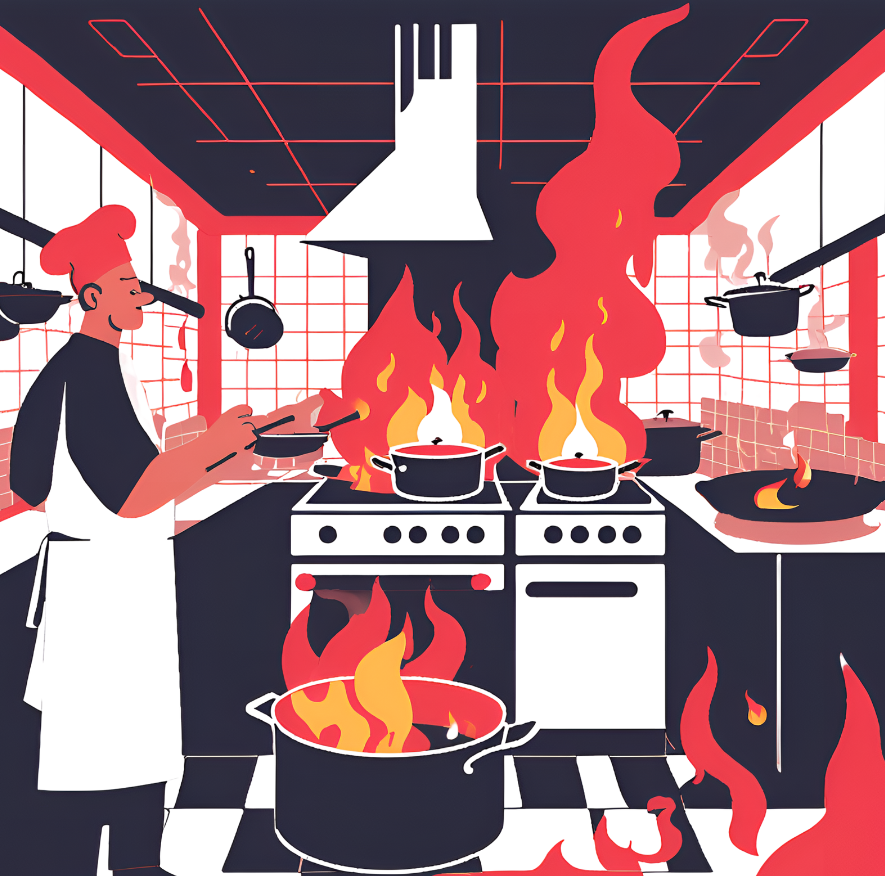The Importance of Restaurant Hood Duct Cleaning and NFPA Fire Safety Standards

The Importance of Restaurant Hood Duct Cleaning and NFPA Fire Safety Standards
For restaurant owners, maintaining a clean and safe kitchen is not just about keeping up appearances—it’s a matter of life, safety, and compliance. One of the most critical but often overlooked aspects of kitchen maintenance is hood duct cleaning. Failing to keep kitchen exhaust systems clean can result in hazardous grease buildup, increasing the risk of fires and violating essential safety regulations.
Why Hood Duct Cleaning Matters
Commercial kitchens produce a significant amount of heat, smoke, and grease-laden vapors that travel through the ventilation system. Over time, these residues accumulate in the hood, ductwork, and exhaust fans, creating a highly flammable environment. Here’s why regular cleaning is essential:
✅ Fire Prevention – Grease is highly combustible. If left uncleaned, the buildup can ignite, leading to devastating kitchen fires.
✅ Air Quality & Ventilation – A clean exhaust system ensures better airflow, reducing smoke, odors, and airborne contaminants.
✅ Compliance with Fire Safety Regulations – Regular hood cleaning is a requirement under fire codes and insurance policies.
✅ Improved Kitchen Efficiency – Proper ventilation helps maintain a comfortable and safe working environment for kitchen staff.
Understanding NFPA Fire Safety Standards
The National Fire Protection Association (NFPA) establishes crucial fire safety standards for commercial kitchens, primarily through NFPA 96—the standard for ventilation control and fire protection of commercial cooking operations.
Key NFPA 96 requirements include:
📌 Regular Cleaning Schedules – Hood and duct systems should be cleaned based on the type and volume of cooking:
-
High-volume kitchens (fast food, 24/7 operations) – Monthly
-
Moderate-volume kitchens – Quarterly
-
Low-volume kitchens (churches, seasonal businesses, etc.) – Annually
📌 Certified Cleaning Services – NFPA 96 mandates that hood and duct cleaning must be performed by qualified professionals.
📌 Proper Grease Containment & Disposal – grease containment systems must be installed and maintained to ensure grease does not accumulate in or around the exhaust system, or on the outside of the building.
📌 Routine Inspections – Kitchen hood systems should be inspected regularly to identify fire hazards before they become problems.
What Restaurant Owners Can Do
Commercial Kitchen fires result in $165 Million worth of direct property damage every year and this doesn’t include the threat they pose to the lives and safety of employees and patrons. It is important to protect the people and the business from kitchen fire liabilities.
🔹 Schedule Regular Professional Cleanings – Ensure your restaurant is on a proper maintenance schedule that aligns with NFPA guidelines.
🔹 Train Kitchen Staff on Fire Prevention – Educate employees about proper grease disposal and daily cleaning practices.
🔹 Install & Maintain Fire Suppression Systems – Automatic fire suppression systems can mitigate fire risks.
🔹 Keep Records of Cleanings & Inspections – Documentation is often required for fire marshals and insurance companies.
Final Thoughts
Restaurant hood duct cleaning isn’t just a best practice—it’s a necessity for fire prevention, regulatory compliance, and kitchen safety. By adhering to NFPA 96 standards, restaurant owners can protect their businesses, employees, and customers from potential disasters.
👉 Don’t wait until it’s too late! Schedule a professional hood duct cleaning today and stay compliant with fire safety standards.